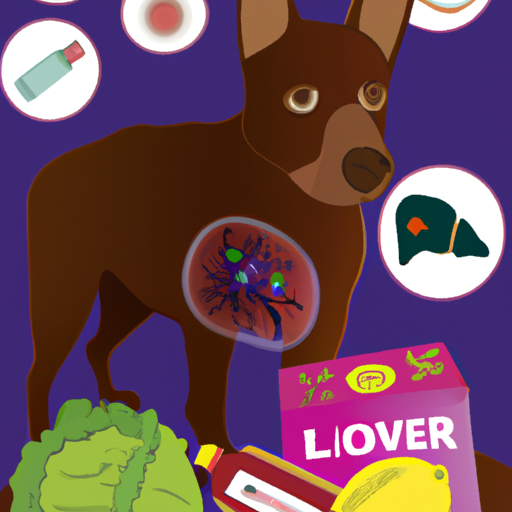As a caregiver, you are likely aware that the well-being of your dog is of paramount importance. It’s crucial to understand that a variety of toxins can lead to elevated liver enzymes in dogs, which can subsequently cause serious health problems.
Introduction
Elevated liver enzymes in dogs signify inflammation or damage to the liver cells. The liver is a vital organ that performs numerous critical functions, including detoxification, protein synthesis, and digestion. It’s therefore crucial to understand the potential causes of elevated liver enzymes.
Toxins That Can Cause Elevated Liver Enzymes
- Drugs and Medications: Certain drugs, such as anti-seizure medications and corticosteroids, can lead to elevated liver enzymes.
- Chemicals: Many household chemicals can be harmful if ingested by your dog, including cleaning products, insecticides, and certain types of paint.
- Plants: Some plants, like Sago Palm and certain mushrooms, can be toxic to dogs and can cause liver damage.
- Alcohol and Ethanol: These substances can result in liver damage if ingested in large amounts.
- Certain Foods: Some foods, such as onions, garlic, and chocolate, can be toxic to dogs and cause elevated liver enzymes.
| Toxins | Hazardous Effect |
|---|---|
| Drugs and Medications | Can lead to elevated liver enzymes |
| Chemicals | Can be harmful if ingested |
| Plants | Can be toxic and cause liver damage |
| Alcohol and Ethanol | Can result in liver damage |
| Certain Foods | Can be toxic and lead to elevated liver enzymes |
Symptoms of Elevated Liver Enzymes
Knowing the symptoms of elevated liver enzymes can help you act quickly and seek the necessary medical help. Some common symptoms include:
- Yellowing of the eyes, gums, or skin (jaundice)
- Loss of appetite
- Increased thirst and urination
- Vomiting and diarrhea
- Unexplained weight loss
Treatment and Prevention
The first step in treating elevated liver enzymes is identifying and eliminating the source of the toxin. Your vet may recommend blood tests, ultrasounds, or a liver biopsy to diagnose the condition. Treatment may involve hospitalization, medication, or in severe cases, surgery.
Prevention involves being proactive in ensuring your dog doesn’t have access to harmful toxins. Regular vet visits can also help detect any liver problems early on.
FAQ
-
What are liver enzymes in dogs?
- These are proteins that help speed up chemical reactions in the body. Elevated levels can indicate liver damage.
-
Can elevated liver enzymes be reversed?
- Yes, in some cases. It largely depends on the cause and severity of the condition.
-
How often should liver enzyme levels be checked?
- This should be discussed with your vet, but typically they are checked during annual wellness exams.
-
What foods are good for a dog’s liver?
- Foods high in antioxidants, such as blueberries, are beneficial. Also, lean proteins like chicken can be good for a dog’s liver.
Remember, as a caregiver, your vigilance can make a world of difference in your dog’s life. By understanding the potential toxins that can cause elevated liver enzymes, you can take better care of your furry friend.



